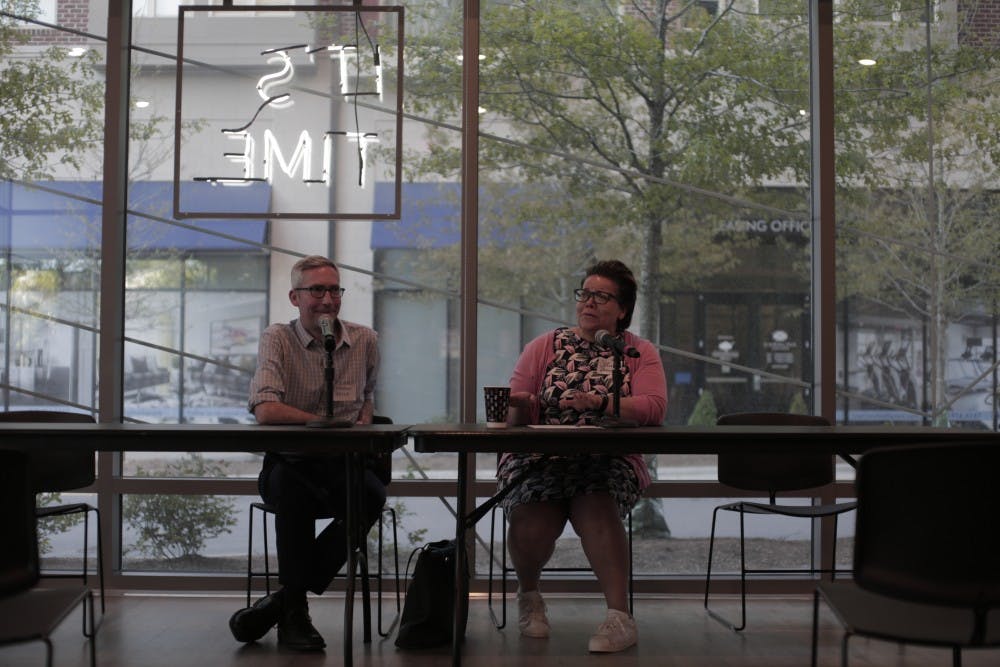In the wake of the Durham Orange Light Rail Transit project’s recent collapse, many are left asking the question, “What’s next?”
This question, along with the broader demand for transportation in Chapel Hill and Carrboro, was the backbone of Tuesday's event at the CURRENT ArtSpace. NEXT, an interest group comprised of residents and communities leaders seeking to improve quality of life in Chapel Hill and Carrboro, sponsored the event, the first of its Sustainable Community Series.
“We’re having our first meeting next week since we discontinued the light rail, so we don’t have a very well-defined new plan yet,” said Mark Marcoplos, an Orange County commissioner and speaker at the event.
Marcoplos named several alternatives to the light rail, including greenways and bus rapid transit, a bus system with a dedicated lane. Regardless of the system implemented, he said connecting Chapel Hill and Carrboro to the rest of Orange County and surrounding areas is crucial.
Part of this focus on connectivity is to provide an equitable experience for residents, something NEXT said is a top priority. Besides transportation and equity, NEXT’s other key issues include affordable housing, diversity, education and the environment.
NEXT Treasurer and Board Member Sue Hunter said it can be challenging to tackle these topics, even in an area like Chapel Hill.
“We’re a progressive community that claims to support transit and greenways, but we’re also often resistant to change, whether it’s putting in bike lanes or funding the light rail project or adding affordable housing or adding in buildings that are more than four stories tall,” Hunter said.
The event stressed the importance of community involvement. Interactive posters adorned the walls asking attendees to write down their most common forms of transportation, and organizers passed out maps of local bus routes and greenways to help participants plan new ways to travel.
“We want more people to have more options,” said Damon Seils, Carrboro mayor pro tempore and Board of Aldermen member. “I would say most of us in Chapel Hill, Carrboro and broader Orange County don’t have a lot of options. We are either driving — or driving.”



